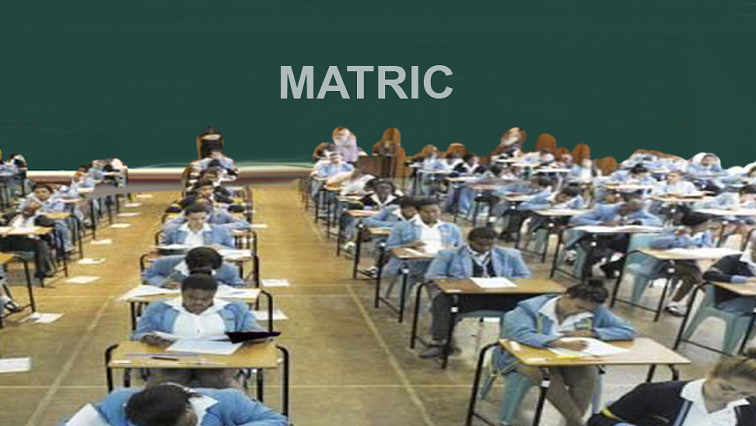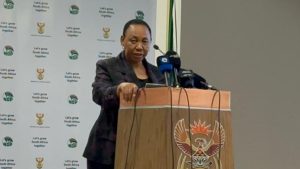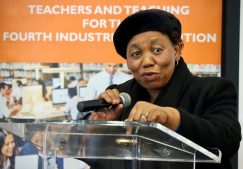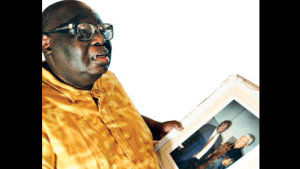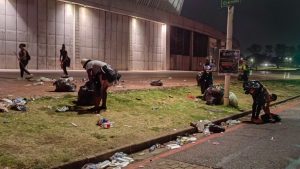Every year our society experiences the release of the National Senior Certificate examination results through a range of lenses. None of these lenses acknowledge the NSC results for what they really are – an indication of a learner’s performance at a point in time by means of an examination which can only assess:
- a very small sample of the knowledge that could be associated with a specific subject,
- a limited number of skills associated with that subject, primarily because expression of knowledge and skill is through a written examination or tests. Comparatively little is assessed using alternate methodologies.
Some subjects have a practical component which is finally assessed through an examination such as visual arts or music. In some subjects such as physical and life sciences, there is no prescribed practical examination, and hence schools that don’t have the facilities aren’t able to expose their learners to the practical skills that are fundamental to the study of science. In some schools, where there might be facilities available, teachers do not bother with practical work because “it will not be tested in the examination”.
The notion of being educated implies a range of additional skills that true students develop over time at school – soft skills of perseverance, prioritisation, persistence, working in collaboration with others, problem-solving strategies, debate and discussion, tolerance of different views, critical engagement with ideas, ownership of thought, responsibility and so on. Either because these skills are difficult to assess or because they will not be overtly assessed in a written examination – or possibly because of both – very few schools actually encourage experiential learning activities as part of their teaching and learning program.
Similarly almost none formally assess soft skills because there are no established methodologies that provide indisputable validity and reliability. However, even though there are critical skills that children develop during their time at school that are not overtly measured in the final NSC examination, these skills are essential for a quality education.
To prepare for the examinations, many schools adopt a rigorous process of “drill and practice”, forcing Grade 12 learners to write an endless number of past examination papers, on the premise that if you do enough, there won’t be a question in the exam that you won’t have seen before. While a learner might get very high marks on this basis, is it an indicator of the educatedness of the learner?
This leads to the question of what is quality education, what is educatedness?
When educators focus narrowly on teaching and assessment as a process of achieving good examination results, we do our profession and in turn our learners, a major disservice. We start believing that narrowing the learning experience to that which will contribute to achieving excellent examination results is educationally sound. Yet this is the complete anti-thesis of what quality education is all about.
Tom Bodett, an American author, said: “In school, you’re taught a lesson and then given a test. In life, you’re given a test that teaches you a lesson.”
If education is for life, I would suggest that the exercise of incessant “drill and practice” does not cut it.
One of the characteristics of good assessment is to frame known concepts in unfamiliar contexts. Some suggest that this is educationally unsound as the context may be “inaccessible” to some learners – and that assessment is only fair when questions are set in environments and contexts with which all learners are familiar.
However, it is educationally sound and educationally desirable to expect a child to apply a known concept in an unfamiliar context. This provides a perfect opportunity to assess problem-solving – does the student start from the concepts that he or she knows; does he or she test options of how they might apply in the context presented; have they tried each option or a combination of options to find a workable solution?
Being given opportunities during class to extend their own knowledge and understanding by applying concepts that they know appropriately in unfamiliar contexts is fundamental. An education process that does not consistently expose learners to opportunities to develop this skill across all disciplines of thinking has failed its learners. Those who believe an examination paper must be contextualised to only those situations and experiences that are familiar to all learners are incorrectly seeing an assessment problem when in fact, what we have is essentially a teaching problem.
Education and training are often confused.
Training is teaching learners what to do – providing them with “recipes” or templates of what to do when they see a particular type of question.
Education however is teaching learners how to think – providing them with strategies and opportunities to apply those strategies, so that “they know what to do even when they don’t know what to do”! In other words, they have strategies they can use to find a solution to whatever situation they find themselves in.
Classrooms in which teaching is confined only to contexts that are familiar to the learners subtly reflect a personal belief within the teacher about what constitutes quality education. For example, a truly educated student in Engineering Graphics and Design should have been exposed to the skyscrapers of Manhattan and Dubai, the churches of Europe, the Temples of Antiquity, the shanty towns of India, the Cubic Houses in the Netherlands, the African rondavels in rural KwaZulu-Natal and so on. With modern technology or even simply a book, this is possible.
As teachers, it is our responsibility to open up a child’s world, no matter his or her background, and expose them to the range and variety of contexts and opportunities that exist outside their own world and range of experience. Give their minds an opportunity to explore the seemingly fantastical and alongside that exposure, give them the opportunity and the courage to engage confidently with the unfamiliar and the unknown, applying known concepts to address problems in unknown contexts.
Miraculously the assessment dilemma disappears and the problem is clear – a matter of learner disposition and confidence in facing the unknown or possibly more accurately, the unpractised.
The key point is that the fundamental notion of a quality education is the expansion of a child’s experience beyond what is familiar to them. It is not the restriction of educational experience to ensure curriculum coverage or exposure only to the known world of the child or what might be in an examination paper.
If the educational experience we give to our learners does not open up the world and expose them to the unknown, where will that experience come from? How will they become equipped to deal with the modern globalised world that has something new in it each day?
Our responsibility as teachers is to provide children not just with knowledge and academic skills, but more importantly to draw on their innate curiosity to develop the softer skills of courage and perseverance, to develop in them the confidence and strategies to tackle the unknown, to provide opportunities and challenges for them to venture purposely beyond their daily existence and engage with that bigger world and unfamiliar situations.
In short, the best prepared learners are those for whom teachers open the world, who teach their students that education is what remains after they have forgotten everything they learned in school – with apologies to Albert Einstein – that prepares them for every eventuality in life that may confront them.
Opinion by Anne Oberholzer, CEO of the Independent Examinations Board


